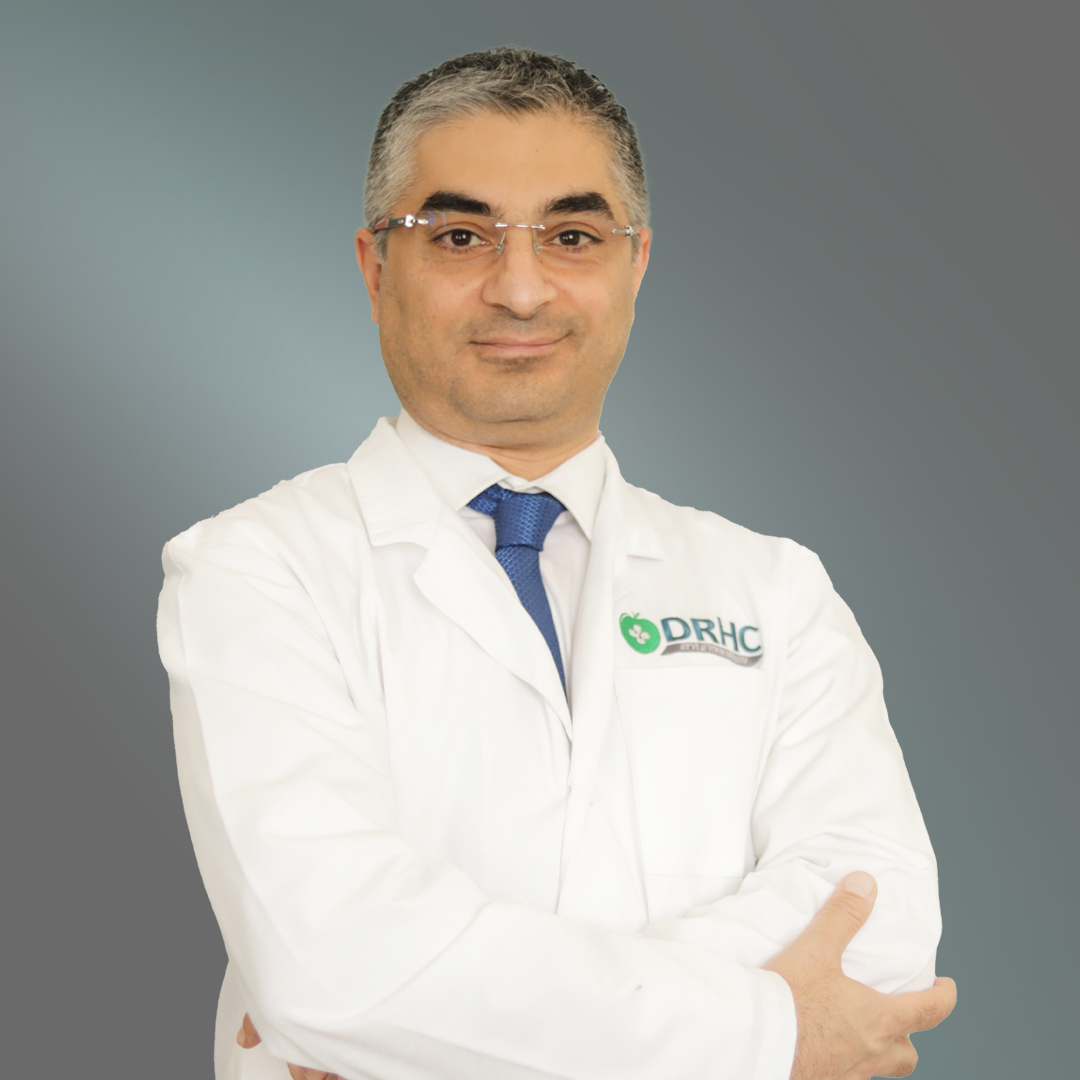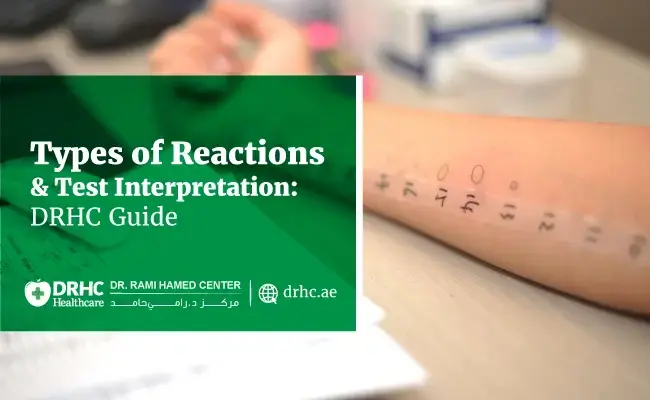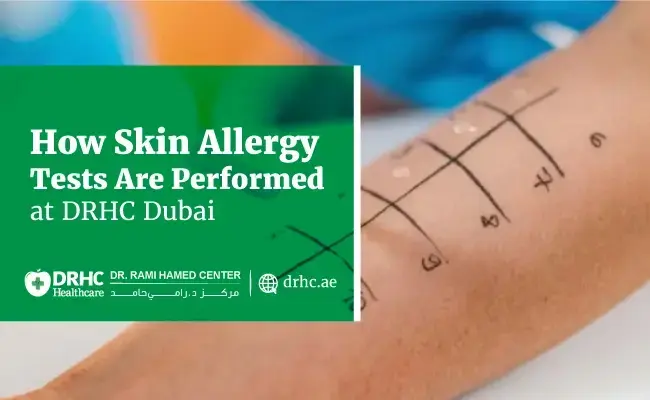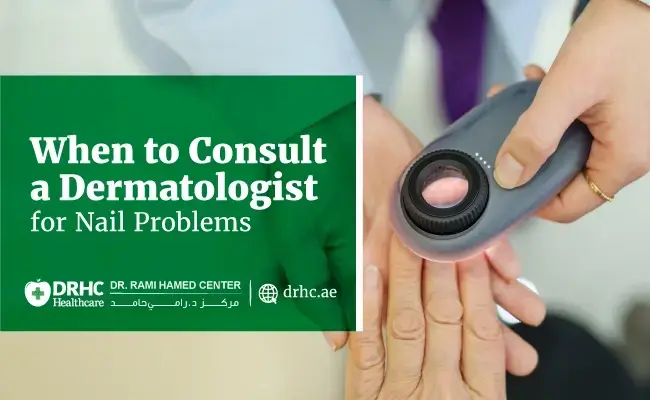
Uneven skin tone and dark spots are among the most common skin concerns seen in Dubai. Whether caused by sun exposure, hormonal changes, or acne, pigmentation disorders can affect both confidence and complexion. Many patients feel frustrated when home remedies or over-the-counter creams fail to make a difference — but with today’s advanced dermatological treatments, clearer and more even-toned skin is absolutely achievable.
At Dr. Rami Hamed Center (DRHC) in Dubai, we understand how skin discoloration can impact your confidence and daily life. This guide explains the most common types of pigmentation disorders, their causes, and the most effective treatments available in Dubai.
What Is Skin Pigmentation?
Pigmentation refers to the natural color of your skin, determined by melanin, a pigment produced by cells called melanocytes. When these cells produce too much or too little melanin, it results in uneven skin tone or visible spots.
There are two main categories of pigmentation disorders:
- Hyperpigmentation: Darker patches caused by excess melanin production.
- Hypopigmentation: Lighter patches caused by a lack of melanin.
Common Types of Pigmentation Disorders
1. Melasma
Melasma appears as brown or gray-brown patches, usually on the cheeks, forehead, nose, and upper lip. It is often triggered by sun exposure, hormonal changes, or pregnancy (sometimes called the “mask of pregnancy”).
Treatment options at DRHC Dubai:
- Laser therapy to break down excess pigment
- Chemical peels to renew the skin
- Topical brightening agents prescribed by dermatologists
- Sun protection to prevent recurrence
2. Post-Inflammatory Hyperpigmentation (PIH)
PIH occurs after skin inflammation or injury — such as acne, eczema, or burns — when healing skin produces extra melanin. It’s especially common in darker skin tones and can persist for months if untreated.
Treatment options at DRHC Dubai:
- Microneedling to encourage healthy cell renewal
- PRP (Platelet-Rich Plasma) for faster healing and regeneration
- Laser resurfacing to fade dark spots safely and evenly
3. Freckles and Sunspots
Freckles and sunspots (also called solar lentigines) result from long-term sun exposure. They are more common in people with fair skin and can appear on the face, hands, shoulders, and chest.
Treatment options at DRHC Dubai:
- Laser treatments that specifically target melanin clusters
- Light chemical peels to exfoliate surface pigmentation
- Medical-grade skincare and sunscreen for prevention
4. Vitiligo
Vitiligo causes white patches on the skin due to the loss of pigment-producing cells. While it’s not contagious or harmful, it can significantly affect a person’s self-esteem.
Treatment options at DRHC Dubai:
- Light therapy (phototherapy) to even out skin tone
- Topical medications that help restore pigment
- Camouflage techniques and psychological support when needed
Advanced Pigmentation Treatments at DRHC Dubai
At DRHC Dubai, dermatology specialists customize each pigmentation treatment plan based on your skin type, condition severity, and desired outcome.
Some of the advanced options include:
Laser Pigmentation Removal
Laser energy precisely targets dark spots without harming surrounding skin. It stimulates collagen and breaks down melanin particles, leaving the skin smoother and brighter.
- Results: Noticeable lightening after 2–4 sessions
- Downtime: Minimal, with mild redness that fades quickly
Chemical Peels
Chemical peels use controlled exfoliation to remove damaged surface layers and promote new, evenly pigmented skin.
- Results: Visible clarity after 1–3 sessions
- Suitable for: Melasma, acne marks, and dull skin
Microneedling with PRP
This treatment combines collagen induction with your body’s natural healing factors to fade pigmentation, improve skin texture, and restore glow.
- Results: Gradual improvement over several sessions
- Added benefit: Skin looks firmer and more radiant
Caring for Pigmentation-Prone Skin in Dubai
Dubai’s strong year-round sun can worsen pigmentation. To maintain results and protect your skin:
- Always use broad-spectrum sunscreen (SPF 30 or higher)
- Avoid direct sun exposure during peak hours
- Follow a dermatologist-recommended skincare routine
- Stay consistent with maintenance sessions if advised
Frequently Asked Questions (FAQs)
1. Can pigmentation completely disappear?
Many types of pigmentation can fade significantly or even completely with professional treatment and proper aftercare. However, maintenance and sun protection are essential to prevent recurrence.
2. How many sessions will I need?
This depends on the type and depth of pigmentation. Most patients notice improvement after 2–3 sessions, while deeper pigmentation may need 4–6 sessions for optimal results.
3. Are pigmentation treatments safe for all skin types?
Yes. At DRHC Dubai, dermatologists tailor treatments to suit your unique skin tone and sensitivity to ensure safe, effective results.
5. Can I combine treatments for faster results?
Yes. Often, a combination of laser, chemical peels, and topical therapies provides the best outcome — your dermatologist will recommend the ideal plan for your skin.
5. How can I maintain my results?
Use sun protection daily, follow a gentle skincare routine, and attend follow-up sessions as recommended by your dermatologist at DRHC Dubai.
Conclusion: Clearer, Even-Toned Skin Is Within Reach
Pigmentation disorders are common but treatable. Whether it’s melasma, sunspots, or acne marks, modern dermatology offers safe and effective solutions tailored to your skin’s needs.
At Dr. Rami Hamed Center (DRHC) in Dubai, our dermatology team provides advanced pigmentation treatments using the latest technology and medical expertise — all within a caring, patient-centered environment.
If you’re ready to restore your skin’s natural balance and glow, book a consultation at DRHC Dubai today. Together, we’ll help you achieve smoother, more even-toned, and radiant skin you’ll feel confident in.
📞 Call / WhatsApp: +97142798200
📍 Visit Us: Dr Rami Hamed Center, Dubai Healthcare City
🌐 Website: www.drhc.ae
Topic: Dermatology









Leave a comment